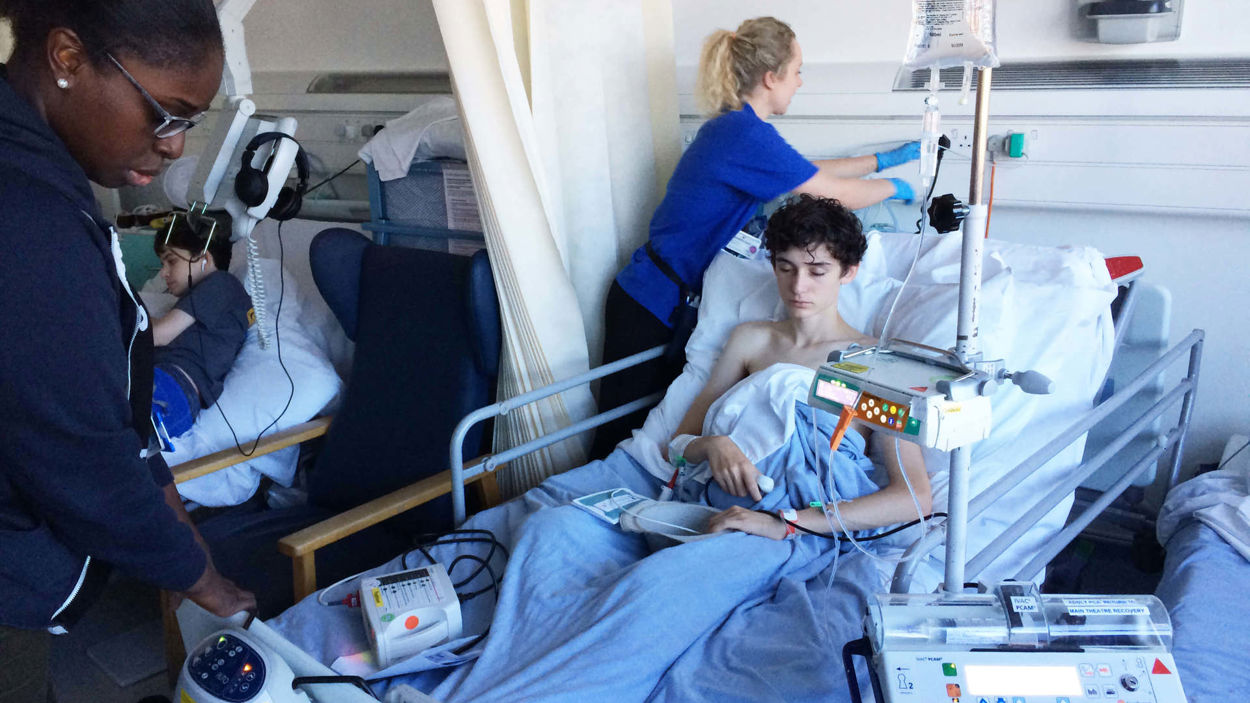an emergency operation removed my colon and gave me a stoma bag
Crohn’s disease and Ulcerative colitis are inflammatory bowel diseases (IBD) that affect the whole body and mind, causing severe pain, exhaustion and deep anxiety.
300,000 people in the UK have IBD and 1 in 4 people newly diagnosed are under 18, which means nearly 4,000 children and young people will be told this year that they have this life-changing, lifelong disease. IBD is disrupting their education and ruining their social life leaving them isolated and alone, with their family frightened by watching ways that they suffer. With more and more children affected by these diseases, it deeply concerns medical specialists that they still don't know the cause nor can they be certain of the best treatment for each patient. Sometimes, surgery is the only option left.
Whatever underlies recent sharp increases in the numbers of children and young people being diagnosed, IBD is a knockout punch for parents and siblings, too. All too often, they’ve never heard of the disease and a quick online search returns thousands of pages of scary and inaccurate information, but with enough for them to realise they face a lifetime of medication, hospital admissions and procedures.
as the shortest in my school year, I struggle to fit in and I’m bullied
IBD is a malfunction of the immune system – the digestive system thinks it is fighting infection, but is in fact attacking itself. This leads to swelling, rupturing and ulcering in the bowel. Symptoms include pain, fatigue, bloody stools, chronic diarrhoea and the inability to wait to use the toilet – not the kind of thing a child or teenager wants to speak about, so many of them end up isolated and alone. They withdraw from everyday activities, avoid school trips for fear of embarrassment and their conditions often flare with the impact of exam stress. Medication sometimes causes personality changes, the reduced nutrition can lead to a lack of height and delayed puberty, with the risk of bullying, and friends may not understand that they are ill because their condition is beneath the surface.
I was hospitalised twice in one year and given seven blood transfusions
Parents face difficulties getting their child diagnosed and fighting schools to make allowance for their child’s needs: extra toilet breaks, help to catch up when their disease flares and frequent medical appointments. Often a parent has to give up work to care for their child and it is devastating to watch someone they love have to deal with IBD across every aspect of their young lives, from family activities to socialising. Many children find it hard to accept they have a chronic medical condition and parents feel under immense strain to help their child come to terms with it, despite a lack of psychological support.
All of which means young people with IBD are more likely to underachieve at school, reducing their job prospects and despite their courage and resilience, they move into adult life having missed out on childhood.
